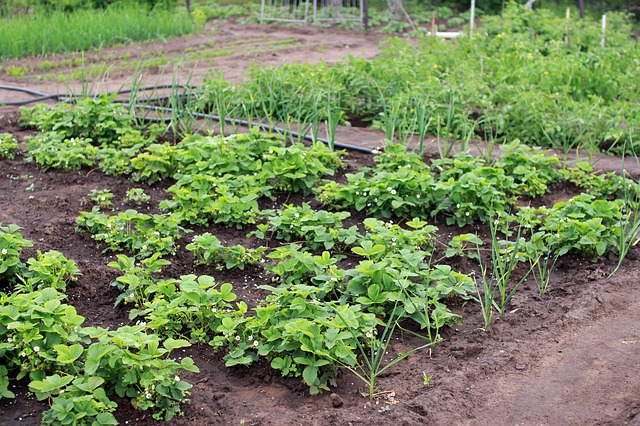
Over the years as I’ve worked to maintain and cultivate my garden frugally, I’ve realized that bigger isn’t necessarily better. When I used to garden in a small partially shaded area, I often dreamed of a larger plot of land where I could expand my efforts. I no longer wanted to be stuck with a limited planting area. I felt suffocated and found it challenging to grow everything I wanted to.
Years later, I’m lucky to have more space, but I still find myself wanting more. I dream of building additional raised beds and filling out every corner of my yard. I always feel stifled at the start of a season. I often think I’ll run out of room and in the planning phase. So I conjure up plans to add container plants here and there, think about where I might want to build the next raised bed, and try to squeeze in every single plant on my wish list. At the start of the season, when there’s still snow on the ground, the options seem endless, and it’s all very exciting.
A Case for Small Gardens
I often hear from friends who have limited space for growing veggies that they’re unsure of how to start and think that their tiny balcony or minuscule grassy area isn’t right for a garden.
I’m quick to correct them. You can grow a garden nearly anywhere. And there’s something to be said about keeping things small. For beginners, a small garden is simply easier to manage. You don’t need to weed as often, you can easily notice problems when they arise, and you won’t find yourself overwhelmed with produce to harvest.
As a veteran gardener, I appreciate the appeal of a small garden more than ever. As I add on fabric pots, plastic containers, and raised beds around my yard, I realize that the effort involved grows along with my garden. I love being able to grow more and harvest more. But along with that benefit comes more work and stress.
Master the Compact First
Before I add on, my strategy is always to master the current space I have. Last year, I thought about adding two additional beds to my setup, but I decided that it made more sense to continue growing in my current raised beds until I find I’m desperate for more room.
The Challenges of a Large Garden
What’s the problem with a large garden? Nothing! But it does come with challenges. While compact gardens leave you with limited planting options, a large garden poses the following difficulties:
- It’s expensive: filling up beds with good quality soil mix, building structures, and fertilizing, all cost more because there’s a larger area to deal with.
- It’s harder to keep up with the harvest: more plants means there’s more to harvest, and while that sounds amazing, sometimes it’s tough to keep up with everything. It requires a keen eye and the development of habits to avoid spoilage and early bolting.
- So much weeding and maintenance: You’ll need to weed, water, and deal with pests on a larger scale, which takes more time out of your daily schedule.
Does this mean you shouldn’t expand your garden? Not at all! A vast growing space is a beautiful thing. What I’m saying is that there’s nothing wrong with keeping things small. If you’re a frugal gardener who doesn’t have the budget to expand, that’s fine. If you’re just starting out, keeping your growing space small is a great way to avoid feeling overwhelmed. I think weighing the pros and cons of garden sizes is well worth it.

Steph Coelho is a freelance writer gardening in zone 5b. She is a certified Square Foot Gardener and has taught various garden-related workshops. When she’s not digging in the dirt or writing, she’s cooking up fresh produce, running, or listening to her favorite podcasts.
Leave a Reply